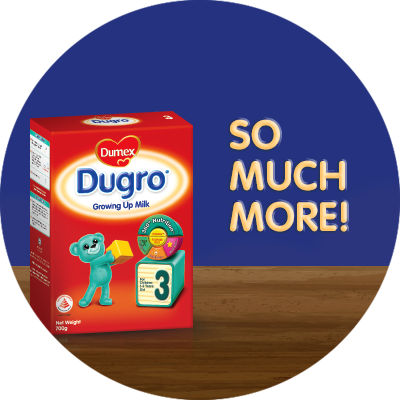Breastfeeding is the best for babies and a healthy diet / maternal nutrition is important when breastfeeding. A decision not to breastfeed can be difficult to reverse. Infant formula is suitable from birth when babies are not breastfed. It is recommended that all formula milks be used on the advice of a doctor, midwife, health visitor, public health nurse, dietitian, pharmacist, or other professional responsible for maternal and child care and the financial implications should be considered. All preparation and feeding instructions should be followed carefully as inappropriate preparation could lead to health hazards.
Teething Troubles And Toothbrush Basics
Each time a tooth breaks through or erupts, the skin over the tooth will become red, swollen and shiny. Some children may find this painful. They may fuss and have trouble sleeping.
To reduce the pain of teething, the following measures are useful:
- Gently but firmly massage or press on your baby's gum with a clean finger or soft cloth. But stop if this upsets your child more.
- Give baby something cold to suck or chew on. If he has started solids, a frozen banana or a block of ice may be soothing (don't leave a child on his own with these). You may also try freezing moistened flannel or plastic teething rings.
- Rub teething gel on the gums if the child is very upset. Use as directed on the packet. Teething gels can be bought over the counter at local pharmacies. Paracetamol drops or syrup may also help.
Take your child to the doctor if teething troubles last longer than three days, or if he has high fever, diarrhoea, sore ears, or refuses to drink.
When your child is ready for tooth brushing, get your child to brush his pearly whites by giving him a toothbrush that he will absolutely adore: a "fun" toothbrush with brilliant colours and wacky shapes.
But fun isn't the only requirement; here are other brush essentials to keep in mind:
- Choose a toothbrush that's small enough for your child to hold comfortably. A long one may strain his arm while brushing.
- Look for a small, rounded head. A big-headed brush may not reach the tight areas of his small mouth.
- Go for very soft, polished bristles. Hard bristles can erode the teeth's enamel and scratch the gums.
- Change toothbrush every three months. By then, the bristles are worn out, less effective, and may also harbor harmful bacteria.
TIP: To prevent cold and flu viruses from being passed among the family, keep toothbrushes apart by storing in a toothbrush holder with separate slots for individual brushes to hang upright.


Ask Our Careline
Whatever’s on your mind, we’re here to help




